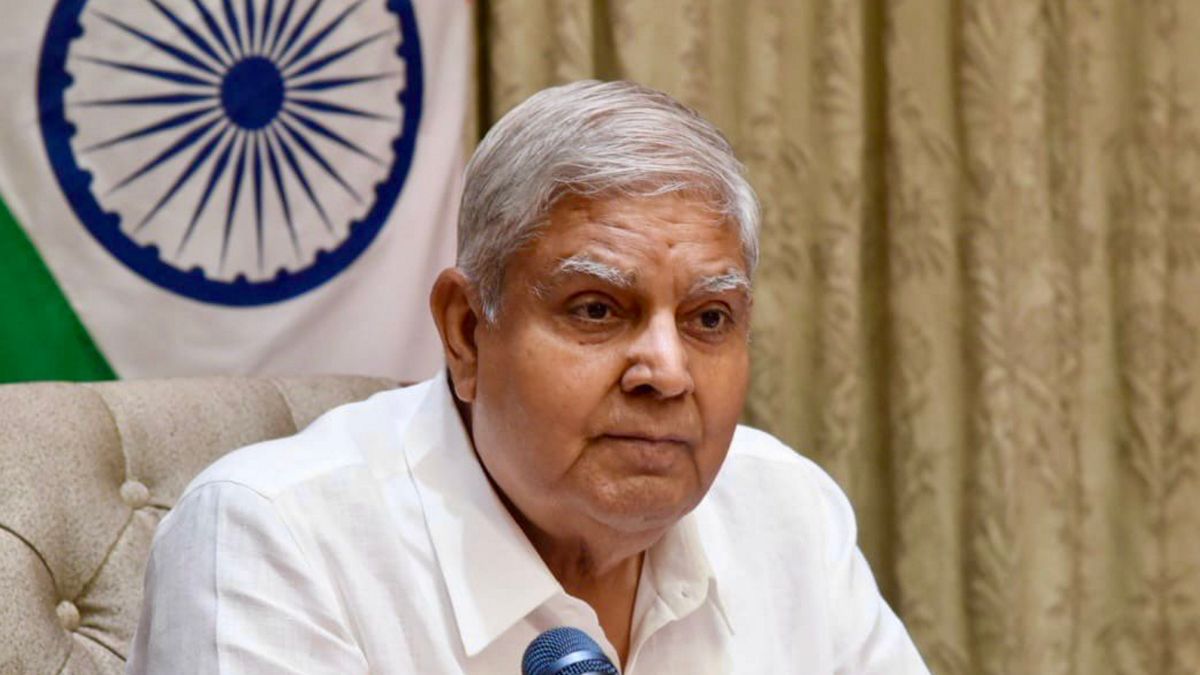Indian Vice President Jagdeep Dhankhar on Tuesday said that the “elected representatives” are the “ultimate masters” of the constitutional contents, adding that there is no authority over the Parliament, as the judiciary vs the executive debate heats up.
“Public representatives are severely accountable on occasion through elections. A Prime Minister who imposed an Emergency was held accountable. Democracy is for the people and is a repository of safeguarding, it is that of elected representatives," Dhankhar said during an event.
A top court bench had recently prescribed a three-month timeline for the president to decide on bills reserved by governors for her nod. Reacting to the directive, Dhankhar had said that the judiciary cannot play the role of a “super parliament” and get into the domain of the executive, stirring a controversy.
“Elected representatives are the ultimate masters as to what constitutional content will be. There is no visualisation in the Constitution of any authority above Parliament. Parliament is supreme. It is as supreme as every individual in the country," the vice president added on Tuesday.
VIDEO | Speaking at an event in Delhi University, Vice-President Jagdeep Dhankhar (@VPIndia) said, "A prime minister, who imposed Emergency, was held accountable in 1977. Therefore, let there be no doubt about it - Constitution is for the people and it's a repository of… pic.twitter.com/mjXt84tLcS
— Press Trust of India (@PTI_News) April 22, 2025
Recalling the Emergency of 1975 when fundamental rights were suspended by former Prime Minister Indira Gandhi, the vice president said, “Why do we celebrate Constitution Day and Samvidhan Hatya Diwas? Because in 1949 the Constitution was adopted. And that Constitution was ‘distained rugged’ in 1975. That time ( Emergency) was the darkest period in human history of the democratic world. I say darkest because the highest court of the land held, ignoring the verdict of 9 high courts. 9 high courts were uniformed that democracy’s fundamental rights could never be put on hold, but that was done.”
What did the VP say?
The Vice President reignited the debate over judicial overreach last week, delivering a forceful critique of the Supreme Court’s authority and asserting that the courts should not have the power to dictate actions to the President.
He said, “There is a directive to the President by a recent judgment. Where are we heading? What is happening in the country? We have to be extremely sensitive. It is not a question of someone filing a review or not. We never bargained for democracy on this day. The President is called upon to decide in a time-bound manner, and if not, it becomes law. So we have judges who will legislate, who will perform executive functions, who will act as super-parliament, and absolutely have no accountability because the law of the land does not apply to them.”


)

)
)
)
)
)
)
)
)



